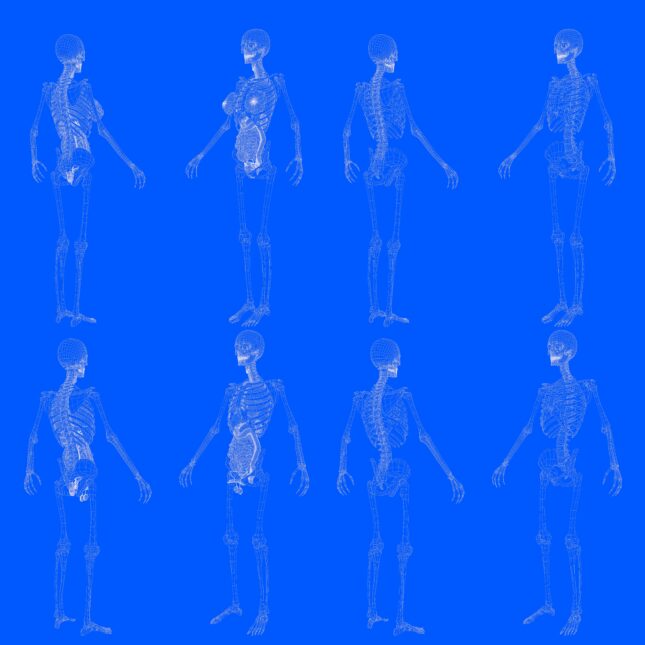
Researchers have long known that, in general, women are more susceptible to autoimmune disorders than men, who are more vulnerable to infectious disease. But why? New research drawing on people who’ve undergone gender-affirming care suggests that hormones are a key part of the answer.
A team led by Swedish scientists monitored 23 trans men who were treated with testosterone, collecting blood samples before and after treatment to see how their immune cells changed. While the abundance and behavior of many cell types stayed the same, certain cells associated with autoimmune responses became rarer and less reactive to activating signals. Conversely, other cellular responses linked to inflammation strengthened.
The authors then found that these immune changes were consistent with findings in cisgender people.
They say their study, published on Wednesday in the journal Nature, is the first attempt to comprehensively examine the impact of gender-affirming care on the immune system. Doing so gave scientists a unique chance to study the role of genes versus hormones in shaping sex differences in the immune system, said Montserrat Anguera, a researcher at the University of Pennsylvania who was not involved in the study.
“I think it’s a really interesting example of this interplay between hormones and genetics. And that’s something that I find fascinating, because it hasn’t been studied, and I kind of see it as the next frontier for science,” said Anguera, who studies sex and autoimmunity.
Four out of every five people who live with an autoimmune disease are female. And while men are more likely to die of Covid-19, women have been more likely to develop long Covid, which experts say mimics aspects of autoimmune disorders.
A mouse study published earlier this year suggested that an RNA molecule that’s indispensable for female survival steers the body toward immune friendly fire. But fully unraveling the factors behind immune sex differences has been anything but straightforward. One challenge is that chromosomes and hormone levels differ between the sexes, making it difficult for scientists to know how much each contributes to the makeup of the immune system.
Gender-affirming care gave researchers a way to separate these contributions. That’s because trans men, who carry two X chromosomes and were designated female at birth, have the genetics of a cis woman but hormone levels comparable to those of a cis man after testosterone treatment, said Petter Brodin, the paper’s senior author and a pediatric immunologist at Sweden’s Karolinska Institute. He added that monitoring immune changes could also strengthen researchers’ understanding of the effects of hormone treatment.
“I’ve always felt like these individuals deserve the kind of scientific approach that we use in other patient groups, which basically means that you do an intervention, and then you monitor to see what happens,” he said.
The authors, including collaborators at Imperial College London, collected blood from trans men ages 18 to 37 before treatment and then 3 and 12 months after beginning testosterone therapy. Researchers isolated immune cells from patients’ blood and analyzed these cells in several ways, including by sequencing their RNA to see which genes were activated, testing which proteins coated the cells’ surface, and growing cells in the lab to see how they responded to chemical signals.
They found that while testosterone treatment didn’t change the total immune-cell count, certain cell types became less common. In particular, researchers measured fewer plasmacytoid dendritic cells, a class of immune cell linked to lupus and other autoimmune diseases in previous studies. These cells play a key role in producing type-1 interferons, immune signaling molecules that help the body ward off viral infections but that can also drive autoimmunity.
The authors found that not only was this type of cell less abundant in trans men post-treatment, the cells produced fewer type-1 interferons when tested in the lab.
In contrast, testosterone boosted the responses of other immune cells, such as monocytes, which regulate speedy responses to infection and can help fine-tune the amount of inflammation behind an immune response. When researchers exposed monocytes from treated patients to bits of bacteria in the lab, the cells produced higher amounts of TNF, an inflammatory signal.
To see whether these findings could explain sex differences in the broader population, researchers analyzed immune cells collected from cis men and women and found analogous differences in TNF and type-1 interferon responses. The authors argue the TNF findings suggest that testosterone could help explain why men are more likely to die of Covid-19, since death from the disease is often linked to overpowering inflammation that damages the airways.
Many aspects of the immune system stayed the same after testosterone treatment, Brodin noted, including the number of antibody-producing B cells found in participants’ blood and the ratio between T cells that kill infected cells and those that help direct the scale and strategy of an immune response. That suggests that while certain features of the immune system may be regulated by hormones, others are controlled by genes.
Precisely why some aspects of the immune system are influenced by hormones isn’t clear, Brodin acknowledged. He added that his team’s working hypothesis is that this system might have evolved to allow the immune system to change throughout our life. For instance, turning on type-1 interferon responses might help women reduce the chance of transmitting a viral infection to a fetus, while tamping down TNF responses could increase the likelihood that a fertilized egg implants in the uterus.
In an accompanying commentary in Nature, Margaret McCarthy, who studies gender differences in the brain at the University of Maryland, wrote that “the findings have broad relevance, with implications for cis and trans immune health.” McCarthy, who was not involved in the study, added that while the paper doesn’t look at health outcomes, it’s important researchers monitor whether hormone therapy decreases trans men’s risk of autoimmunity while increasing their risk of harm from infection.
The authors are in the process of studying trans women to see whether gender-affirming care induces changes that mirror those reported in this paper. Brodin’s team is also exploring how hormones impact the immune system before puberty by recruiting people who are otherwise healthy but are about to get hormone therapy as a treatment for delayed puberty onset.






